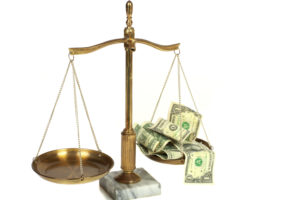Contents

Attorney fees will be paid directly by the Bankruptcy Court from the debtor’s monthly Chapter 13 payments. This ensures that the attorney is paid in a timely manner, without the debtor having to worry about paying the attorney out of pocket.
An application for attorney compensation or “fee application” in Chapter 13 bankruptcy refers to the request a bankruptcy attorney makes to the bankruptcy court for payment of their legal fees. In Chapter 13 bankruptcy, individuals are required to make monthly payments to repay their creditors over a period of three to five years. Part of these monthly payments is set aside for the payment of attorney fees.
The purpose of the attorney compensation application is to ensure that the bankruptcy attorney is paid for their services rendered in the Chapter 13 bankruptcy case. The bankruptcy court will review the application and determine the reasonable amount of attorney fees that should be paid from the debtor’s monthly payments. The court will also consider various factors when determining the reasonable amount of attorney fees, including the complexity of the case, the time and effort required by the attorney, and the attorney’s hourly rate.
Once the court has approved the application for attorney compensation, the attorney’s fees will be paid directly from the debtor’s monthly payments. This ensures that the attorney is paid in a timely manner, without the debtor having to worry about paying the attorney out of pocket. The attorney compensation application is an important aspect of Chapter 13 bankruptcy, as it helps to ensure that the bankruptcy attorney is fairly compensated for their services.
It is important to note that the bankruptcy court has the final say on the amount of attorney fees that will be approved in a Chapter 13 bankruptcy case. The court will carefully review the attorney compensation application to ensure that the fees requested are reasonable and in line with the guidelines set forth by the bankruptcy code. If the court determines that the fees are unreasonable, it may reduce the amount of attorney fees approved, or it may require the attorney to reapply for compensation.
Chapter 13 bankruptcy is a debt repayment plan that allows individuals to repay their creditors over a period of three to five years. One of the key components of a Chapter 13 bankruptcy case is the fee application, which is the process of submitting a request to the bankruptcy court for payment of attorney fees. In this post, we will discuss the role of fee applications in Chapter 13 bankruptcy and what you need to know about this important aspect of the bankruptcy process.
Why are fee applications necessary in Chapter 13 bankruptcy?
In Chapter 13 bankruptcy, individuals are required to make monthly payments to repay their creditors. Part of these monthly payments is set aside for the payment of attorney fees. The fee application is the mechanism by which the bankruptcy attorney submits a request to the court for payment of their legal fees. The purpose of the fee application is to ensure that the bankruptcy attorney is fairly compensated for their services and that the court approves the amount of attorney fees that will be paid through the debtor’s monthly payments.
What is involved in a fee application?
A fee application in Chapter 13 bankruptcy typically includes the following information:
- A detailed explanation of the services provided by the bankruptcy attorney
- A breakdown of the time and effort required by the attorney to complete the services
- A calculation of the attorney’s hourly rate and the total amount of attorney fees requested
- A justification of why the attorney fees are reasonable and in line with the guidelines set forth by the bankruptcy code
Once the fee application has been submitted, the bankruptcy court will review the application and determine the reasonable amount of attorney fees that should be approved. The court will take into account factors such as the complexity of the case, the time and effort required by the attorney, and the attorney’s hourly rate.
What happens after the court approves the fee application?
Once the court has approved the fee application, the attorney fees will be paid directly from the debtor’s monthly payments. This ensures that the attorney is paid in a timely manner, without the debtor having to worry about paying the attorney out of pocket. The attorney fees will be paid until the debt repayment plan has been completed or until the court determines that the attorney fees have been paid in full.
In conclusion, fee applications are a crucial aspect of Chapter 13 bankruptcy. They ensure that the bankruptcy attorney is fairly compensated for their services and that the court approves the amount of attorney fees that will be paid through the debtor’s monthly payments. If you are considering filing for Chapter 13 bankruptcy, it is important to work with an experienced bankruptcy attorney who can guide you through the process and help you understand the requirements for fee applications.




